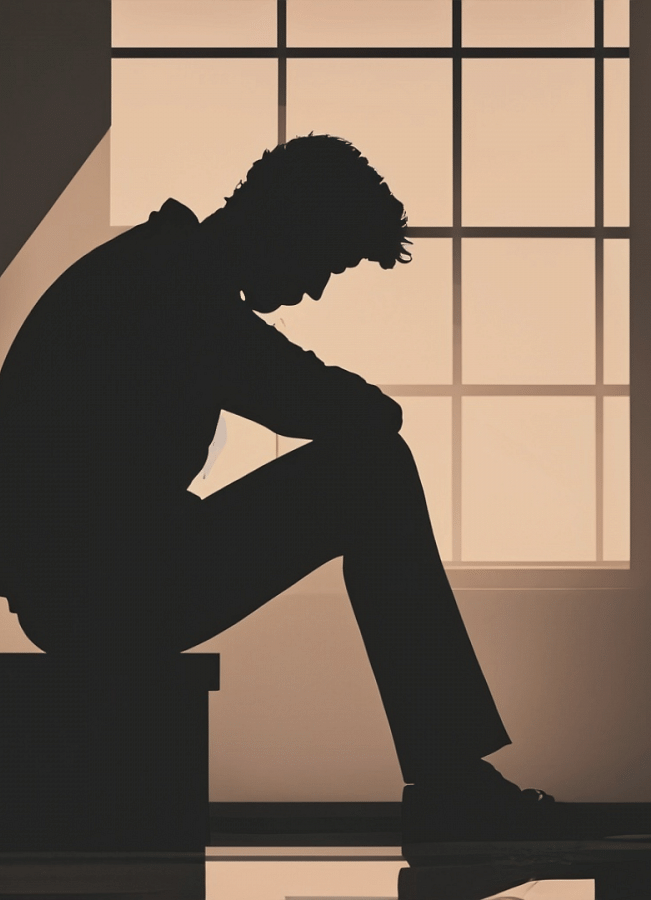Mourning in silence: Why men grieve differently

Our society treats them differently. From an early age, men are constantly reminded that their behaviour must not mimic women. This leaves us pondering, do societal expectations put men on a lonely journey of processing loss? Let's uncover some of the answers...
Winters used to be chilly back then and perhaps it felt colder than usual on that January morning — a Wednesday — if memory serves me right. I was playing with neighbourhood children when the news reached us: Abba had a road traffic accident; his condition was critical. Everyone understood what had actually happened. The memory of my Nani wailing at the news is fresh in my mind, but what I remember most is the way I did not cry. As a boy of six, I had my first lesson on what it takes to be a man — Talha Zubeyr, 45, a communication specialist.
Husnay Ara Begum, Clinical Psychologist, Nasirullah Psychotherapy Unit (NPU), Department of Clinical Psychology, University of Dhaka, explained that men and women have different mechanisms to cope with the loss of a loved one.
"Society teaches us how to handle feelings. Even from a very early age, boys are treated differently; men take cues from this on how they should act when they lose someone close," she said.
Unlike women, men often tend to grieve in silence. They prefer to be left alone or try to lose themselves in diversions like work or jumping into getting involved in new relationships.

It is a common expectation that men should express their emotions differently, but not all men mourn in the same way. Our surroundings impart values and a set of expectations for members to follow. As a result, men grow up differently and their emotional bonding is different.
"A boy growing up in the village, for example, faces a set of societal expectations that is different from what a male child experiences in the cities," Begum adds.
People are more likely to channel their sadness in ways that resemble their attitude towards life in general. That is equally true for men, as it is true for women. Societal and religious teachings expect men to be guardians and protectors.
"A boy is taught to become aloof from his mother as they grow up. What we tend to miss is that they are taught to become detached from the father, and other male members of the family as well," Begum reminded. From a very early age, they are expected to be 'strong' which in our society equates to 'not expressing feelings.'
"Individuals duly taking up this role are often left alone in their journey of processing loss," reiterated Begum. Psychologists believe that maladaptive coping mechanisms for grief make men vulnerable to certain traits. Short-term results may include heightened anxiety, restlessness, and anger outbursts.
"Many face difficulty in problem-solving. Dysfunctional methods of grieving can extend to somatic complaints like headaches and fatigue. Some even develop cardiovascular diseases," Begum said.
People are slowly becoming aware that imparting the wrong cues for boys growing up can result in creating negative vibes in their persona. Much is being done to ensure that both boys and girls grow up in a healthy atmosphere. However, we must realise that even a large number in our urban setting does not present the vast majority of people out there.

Husnay Ara Begum said, "A forty-year-old cannot be expected to behave differently all of a sudden. We cannot expect him to vocally mourn the death of someone, no matter how close."
Men have to unlearn not only the teachings of their childhood but also the expectations of people presently surrounding them. It is so ingrained in society that they do not often realise that their method to channel grief is detrimental to their mental and physical well-being.
There is no doubt that it is high time that we embark on a collective journey to mitigate the adverse effects of societal pressure on grieving men. We can hope that engaging in conversations that challenge traditional notions of masculinity will create support systems that will empower men to embrace vulnerability without fear of judgment.

 For all latest news, follow The Daily Star's Google News channel.
For all latest news, follow The Daily Star's Google News channel. 








Comments